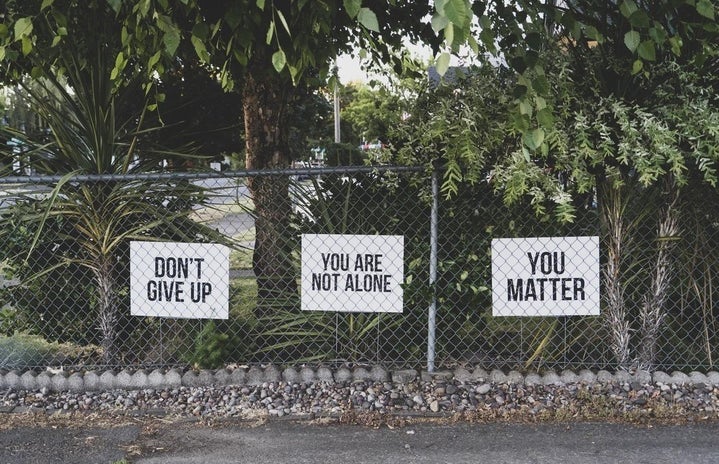This article represents the opinion of a HerCampus author and does not represent the views of HerCampus.
For how long have we, as a nation, been aware of the rising mental health trends in the UK? The answer is long enough to take action. Yet, rising rates of mental health conditions throughout the UK, especially young people, exemplifies that the current healthcare system for mental health is in need of desperate revision if we are to support the increasing numbers of people seeking mental health support.
In 2016, Health Secretary Jeremy Hunt stated publicly that child mental health services were the NHS’s “biggest failing”. Now eight years on, the government have foregone the chance to amend this, with the released Spring Budget for 2024 revealing no further funding to mental health support. This failure to respond to the current crisis highlights the inadequacy in the government’s allocation of funding, failing to see the urgency of the situation the UK finds itself in. With no new early support hubs, and with one study from the Royal College of Psychiatrists finding waiting times across the UK varying from more than 12 weeks (23% of people) to more than six months (12%), a staggering 78% of people responded stating that they reverted to having to use emergency services for their mental health, since they could not seek support in within hours practices. How much clearer does the message have to be, and how much more dire the situation before the government take action? Despite an open letter from Young Minds being signed by 15,000 activists being sent to Jeremy Hunt on the 5th March 2024 for further funding for early intervention support hubs, the government neglected to hear these voices.
Not only this, but the Spring Budget revealed that the government have reduced police action to mental health calls, known as the Right Care Right Person Approach. Whilst alone this might be beneficial, increasing the availability of police force, the government failed to then allocate any extra funding to the NHS to deal with this extra workload. How is the NHS crises services supposed to cope with an extra one million hours of support with no extra financial aid? The answer, unfortunately but not surprisingly, is they can’t. I appreciate the impossible situation the NHS is in, working in crisis management mode for the Child and Adolescent Mental Health Services (CAMHS), failing to respond in a preventative mode and instead only having the funding, staff, and capacity to respond once problems have surpassed a critical threshold (which is ever increasing). Thus, this leaves thousands of young people stuck between a rock and a hard place, where they fail to reach new higher thresholds for acceptance to CAMHS, but still have hugely impactful mental health deterioration. Thus, it is no surprise that waiting for mental health support increases mental health burden, with one study finding that 76% of parents reported a worsening of their child’s mental health in the prolongued wait for support. Sadly, this deterioration means many young people are only being given adequate support once their mental health is critical, something that could have been prevented had the NHS been allocated extra support to aid mental health. I am so appreciative of the NHS, and am grateful for living in a country with public healthcare access, understanding that they too have their hands tied by funding allocations, no matter how much those within the NHS wish to help everyone with mental health needs, and I feel the NHS takes much blame for increasing mental health deterioration despite not having the funding to be able to implement the help needed.
Whilst in positive news the Household Support Fund is being extended by six months, helping people in poverty to cope with the ongoing cost of living crisis. However, this alone is not enough, or long enough time to truly impact those in need, and the Fund must be continued longer than six months if effect is going to be had.
So, why should the government support young people’s mental health? Is it really as bad as everyone says? The short answer is: yes. It is so much worse. And even if we take out the personal reasons such as quality of life, businesses and governments should take notice on a financial level. 50% of mental health illnesses arise before age 15, and 75% before age 18, clearly showing the importance of early intervention in youth and the lasting impact this can have throughout life. If we invest early, the government saves money. The lifetime cost from loss of income from poor childhood mental health is £3000,000. Only 1 in 3 young people with diagnosed mental health condition are able to access NHS treatment. No matter what angle we take, funding mental health makes sense. And it is about time we finally see this and learn from the past and start taking action.


